Learn about our Doctor of Dental Surgery program, what to expect each year, and why you should choose the UB School of Dental Medicine.
Accreditation
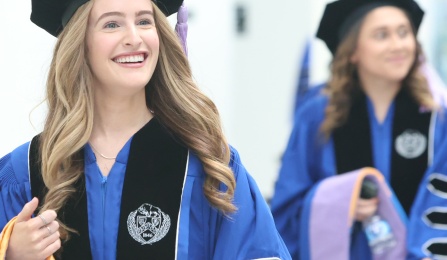
The University at Buffalo Doctor of Dental Surgery Program is accredited by the Commission on Dental Accreditation, and has been granted the accreditation status of accredited without reporting requirements.
The Commission is a specialized accrediting body recognized by the United States Department of Education.
The Commission on Dental Accreditation can be contacted at (312) 440-4653 or at 211 East Chicago Avenue, Chicago, IL 60611.
Setting You Up To Succeed
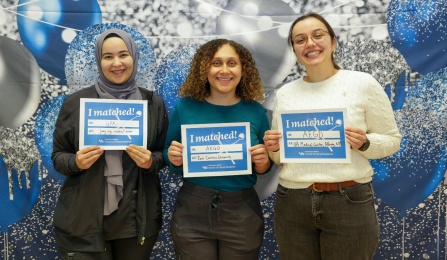
Our graduates practice across the United States, and in Canada, in many different settings, serving as:
- general practitioners
- specialists in private practice
- dental researchers; managers in the private sector
- health-care administrators,
- faculty in dental schools,
Beginning With The Basic Sciences
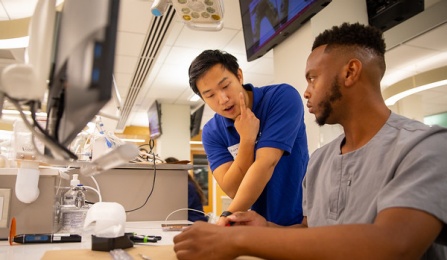
Although dental medicine involves oral cavity and its associated structures, students learn about all human organ systems and associated disease processes since diseases of one system often produce concomitant disturbances in other systems and regions of the body.
The strong basic science training stressed in the first three years of the program provides the foundation for future professional growth.
Our students graduate understanding and practicing dental medicine, and are well-prepared to critically review and analyze dental literature in order to keep their knowledge and skills current throughout their professional careers.
Clinical Experience Is a Priority
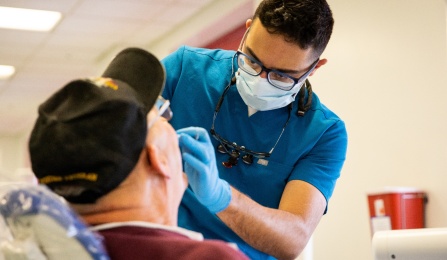
Our clinical training program begins in the first year. The mix, structure, pacing and quality of our clinical experiences is one of the particular strengths of the UB program.
Our clinical courses are structured so that the lecture supports the laboratory/clinical experience, and the school’s advantageous faculty-student ratio — with 66 full-time and 113 part-time faculty teaching a student body of approximately 425 — fosters the one-on-one instruction essential to providing a comprehensive clinical experience.
The school has a long tradition as a provider of excellent clinical services and is entirely responsible for the acquisition of patients. Each year there are in excess of 30,000 patient visits. With more than 15,000 patient files, there are approximately 6,500 patients under active treatment at any time.
Earlier Exposure to Patient Care
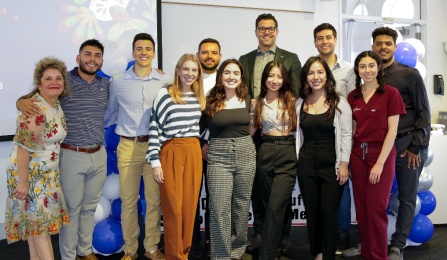
Students begin patient care earlier in the UB DDS program than at most schools, but with careful support and supervision.
Early exposure in the preclinical and clinical courses allows students to integrate their basic science training with their clinical experiences for a more comprehensive understanding of the material; it also provides an opportunity for students to see practical applications of the concepts they are discussing in lecture classes.
Students are introduced to patient care over the four-year curriculum, with a gradual increase in the time allocated to clinic and the sophistication of the care provided.
First-year students spend one afternoon each week in the clinic, progressing, by the fourth year, to nearly full-time patient care.
Clinical Training Geared to Modern Practice
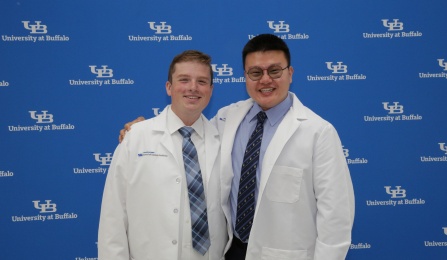
The school has dramatically restructured the clinical experience both to more closely simulate practice after graduation and to provide better patient care.
Our focus is on treating patients. Following evaluation of patients’ health-care needs, the patients are assigned to students for treatment based on student need. Students are then responsible for completing their patients' care under the guidance of faculty. This organization better prepares students for practice after graduation.
We ensure training in all the areas of clinical dentistry by carefully assigning patients. The school's new computerized patient-management system allows us to closely monitor students in terms of their exposure to patient treatments and patient progress.
Research Strengthens the DDS Program
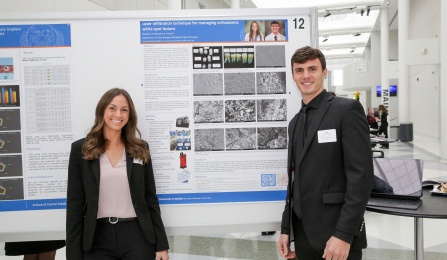
DDS students receive ongoing instruction in the most significant advances in the profession throughout their four years, and they graduate far more knowledgeable about the dental profession.
Some of our students who choose to take advantage of the school's research opportunities have presented at national conferences.